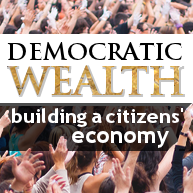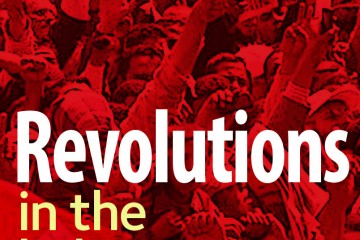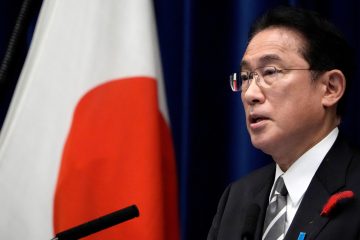
Co-ops and Mutuals: a better way?
A debate is emerging in the UK and elsewhere about the possible role of cooperatives and mutuals in building a better economy. But what makes for good performance by a co-op or mutual? What values should enterprises of this kind seek to embody or promote? How can they do it? These questions are, in part, questions about the underlying moral and political philosophy of co-operatvism and mutualism. A British Academy-funded research project, currently being run at Kellogg College’s Centre for Mutual and Employee-Owned Business, aims to explore these questions and develop a framework for evaluating cooperative and mutual performance. The research team would like to know what you think of their ideas. We invite your comments below each article.

List of Books for Review
Politics in Spires is launching a new series in which contributers are invited review books written by Oxford academics. If you know of a recent (last 24 months) book by anyone at Oxford please submit it to katharine.brooks@politics.ox.ac.uk. Here is a provisional list of books for review:
Algeria: Why Today’s Elections Are Essential
Since the partitioning of the Sudan, Algeria is the largest African country and a primary regional power in the Mediterranean region. Therefore, the condition of this North African pivot-state is essential for Europe: Algiers is the 3rd largest energy supplier to the EU, while its population of 38 million inhabitants, its anti-terrorism security expertise and the size of its armed forces (130,000 men) make their security capabilities necessary to the stability of the Sahel zone. Moreover, with a gross domestic product (GDP) of 208 million dollars in 2013, Algeria remains the largest regional economy. Algiers was the least affected by the wave of the Arab Spring despite negative societal indicators. This situation contrasts with that of Tunisia or Egypt, notably due to politics of large redistribution of riches gained from oil revenues, but also due to the people’s fear of a return to a decade of stagnation.
Nevertheless, the relative calm in this country during the last three years should not lead one to believe that the upcoming presidential election is not without high stakes. In fact, the trajectory of this powerful regional presence is uncertain for at least two reasons. First, the country’s socio-economic dynamic is worrisome. Second, the security dynamic is deteriorating given that Jihadist groups have found new resources. Thus, in the context of a tense regional framework, the Algerian situation is more important today than ever before.

Democratic Wealth: free e-book on building a citizens’ economy
‘Democratic Wealth’ is a collection of essays that challenges the poverty of thinking around economic policy, particularly after the 2007 financial crash. It explores the renewed interest in republicanism and suggests this as a framework to shape an economy that serves the common good. It is a selection of articles from a series published by openDemocracy and Politics in Spires, a blog run by the universities of Oxford and Cambridge.
The book is split into three parts. The first, Taking Back the Economy, features contributions from Philip Pettit, Thad Williamson, Joe Guinan, Jessica Kimpell and others on republican thinking and the market. The second, Republican Economy in Practice, looks at application around the globe, including contributions on cooperatives, sovereign wealth funds, basic income, tax fairness and green solutions and discusses how to develop these models at scale. In the third, Republican Politics, contributors including Quentin Skinner, Alex Gourevitch and Karma Nabulsi discuss the politics of republicanism, from challenging the surveillance state to democratising the workplace and harnessing the demands of new social movements for freedom from domination by the one per cent. It ends with an afterword by James Meadway, senior economist at nef, on clearing a path for a better future.

The insecurity of a security state: What can Hannah Arendt tell us about Egypt?
In Egypt, it is clear that constructive results are not going to materialise anytime soon. Increasing state violence, arrests and intimidation have no clear logic beyond an attempt by the security apparatus to regain power and tighten control over the economy. It is an outworn order that risks collapsing.
While the regime does have a serious security issue on its hands, namely the Sinai-based terrorism that has now spread to Cairo, the regime is increasingly blurring the lines between terrorism and anyone who opposes the official line. Labelling the Muslim Brotherhood as a terrorist organisation, outlawing anti-regime protests, cracking down on NGOs and the clampdown against anti-regime activists and journalists are indications that the security state is disintegrating. The regime is carrying out violent measures against Islamists and youth – two major groups that cannot afford to be alienated – signalling the regime’s struggles to control a significant segment of the population via peaceful means.

If we are to apply it to contemporary politics, which republicanism should we be talking about?
Too narrow an interpretation of republicanism can rob us off many of the tools and insights we should now be employing. This is no time for elite paternalism.
As an intellectual tradition, republicanism is a broad church. J. G. A. Pocock’s seminal charting of a particular part of that tradition, his genealogy of republicanism’s role in Britain’s 13 North American colonies’ struggle for and consolidation of their independence in The Machiavellian Moment, takes in figures as different as Niccolò Machiavelli and Alexander Hamilton.
Any attempt to draw on the republican tradition for contemporary political insight needs to be aware, then, of the variety of thinkers who fall within it and the specificity of the problems they were trying to solve. Often their differences are considerably greater than their similarities, and in failing to appreciate those differences, much of the sophistication and plausibility of the lessons we might learn from the tradition can be lost.

Republicanism and revolutions: a tradition of theory and practice
Republicanism can be explored as a tradition of practices and virtues, tied to the creation of revolutions. At this tradition’s core, and what attaches it through time and place, lies a recurring dominant principle – that of popular sovereignty.
Hannah Arendt, for one, doesn’t think there can be such a tradition of revolutions, because it is a treasure, a public good, which she claims is irrevocably lost between generations. In her The Gap between the Past and the Future, she begins her own quest for the lost treasure of revolutions with the mysteries of its definition:
“The history of revolutions… could be told in parable form as the tale of an age-old treasure which, under the most varied circumstances, appears abruptly, unexpectedly, and disappears again, under different mysterious conditions, as though it were a fata morgana. There exist, indeed, many good reasons to believe that the treasure was never a reality but a mirage, that we deal here not with anything substantial but with an apparition, and the best of these reasons is that the treasure thus far has remained nameless. Does something exist, not in outer space but in the world and the affairs of men on earth, which has not even a name? Unicorns and fairy queens seem to possess more reality than the lost treasure of the revolutions.”

What an El Sissi presidency would mean for Egypt’s relations with the Gulf States
The announcement by Egypt’s Defense Minister, now Field Marshall, Abdel-Fattah El Sissi that he would be running for president was greeted with joy and with apprehension, not only in Egypt, but also in the Gulf States. If current trends hold, it seems increasingly likely that El Sissi will be comfortably elected to serve as president of Egypt for at least the next four years. Egypt’s relations with the Gulf States under a potential El Sissi presidency will largely be shaped by the positions these states have taken in the past few months.
Saudi Arabia, Kuwait, the UAE and Bahrain, who considered the Muslim Brotherhood to be a significant domestic threat, have strengthened relations with Egypt following the overthrow of former president Mohammed Morsi. Saudi Arabia, Kuwait and the UAE, who welcomed Morsi’s overthrow immediately pledged $12 Billion to post-Brotherhood Egypt, increasing their assistance in the subsequent months. If elected, President El Sissi will look to build on the current relationship with these states, possibly by visiting Riyadh, where he previously served as military attaché, and Abu Dhabi soon after the election. Although the UAE’s Prime Minister stated in an interview with the BBC that he “hopes (El Sissi) remains in the military, and that another person [runs] for the presidency”, a clarification was soon issued by the official news agency saying that the “brotherly advice is that General al-Sissi should not run as a military man for the post of the presidency”. El Sissi has already stated that Saudi’s support for Egypt will “never be forgotten” and expressed gratitude for the UAE’s aid.









